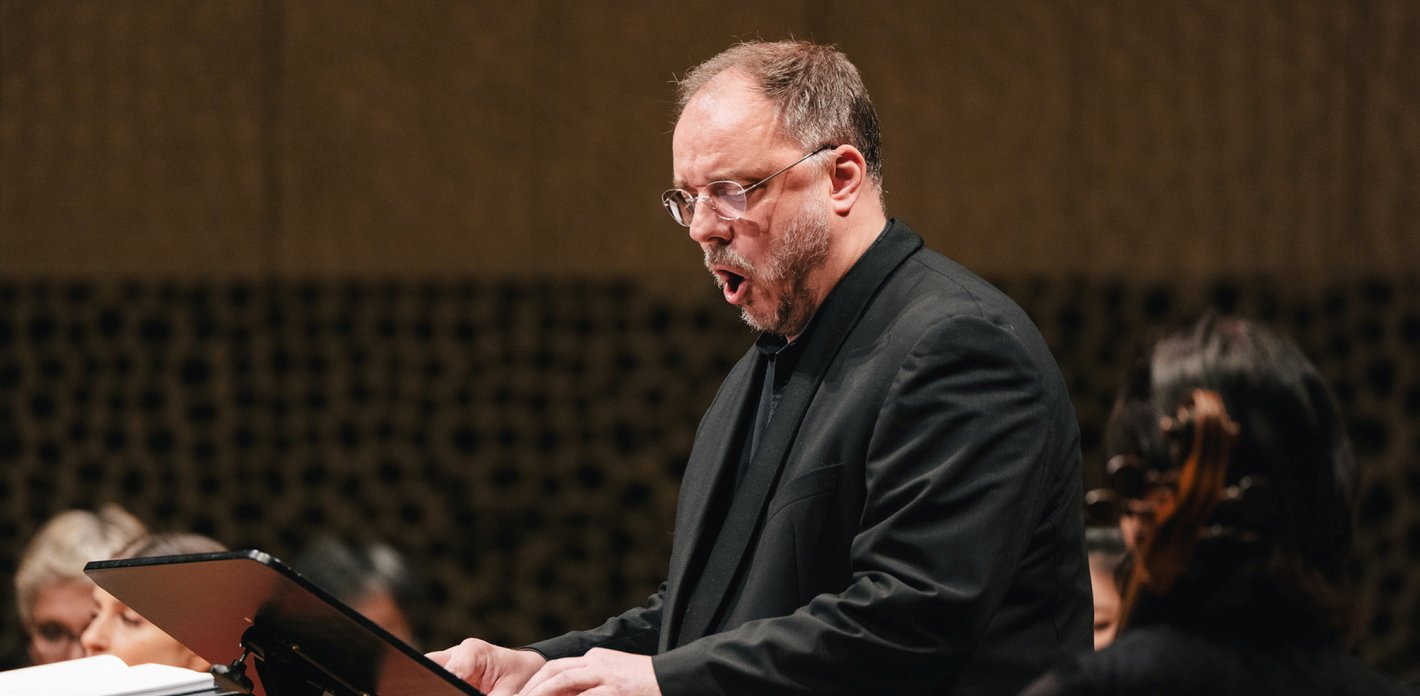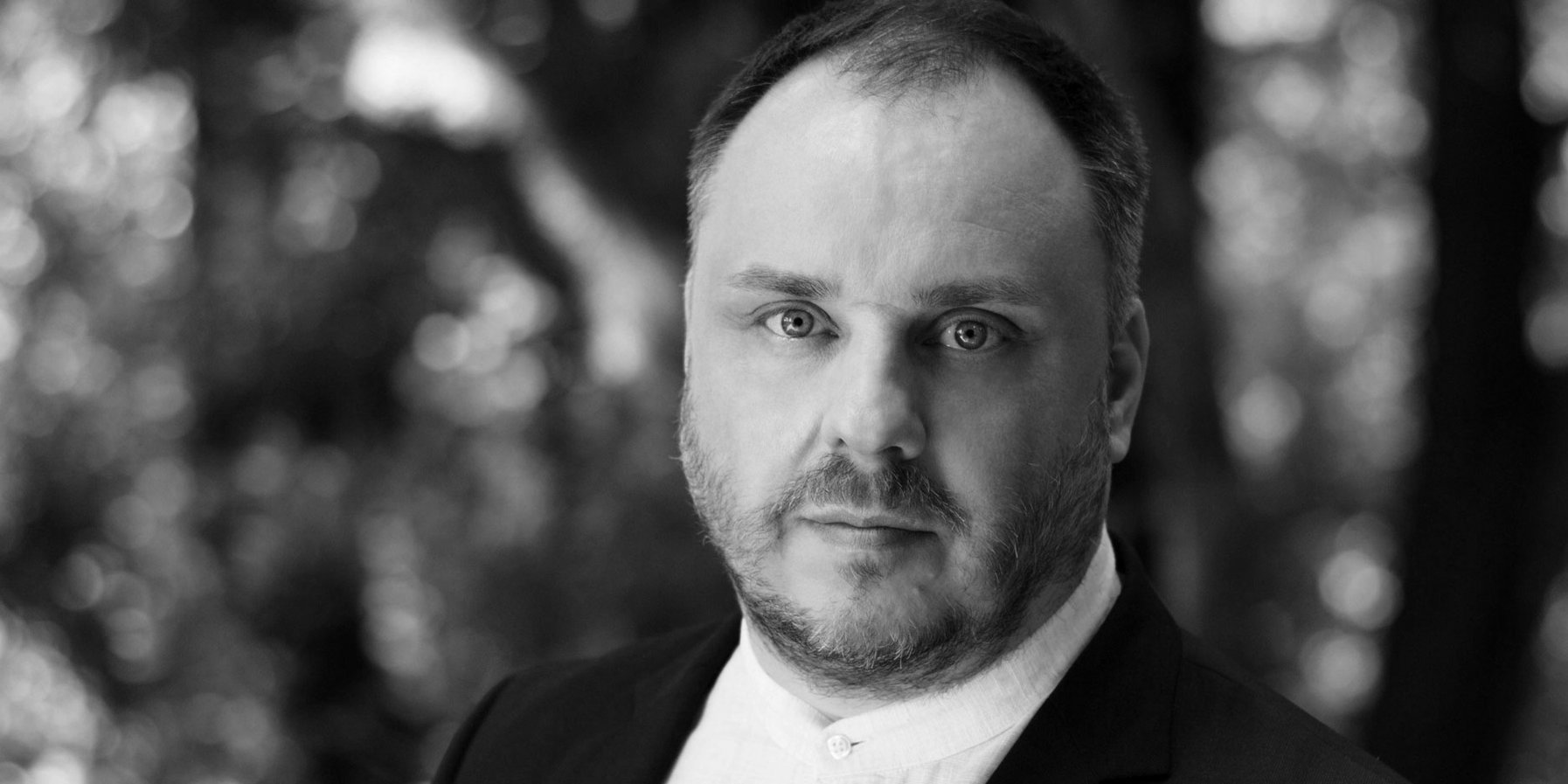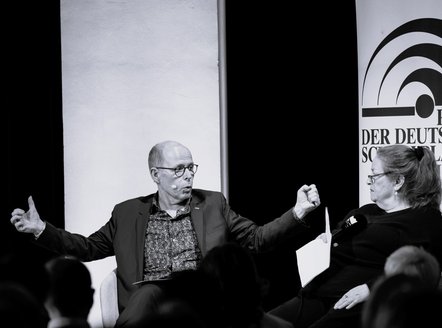Interview: Bjørn Woll, published in April 2025
Translation: Clive Williams
Matthias Goerne’s home is first and foremost the art song. Here he is one of today’s best performers, captivating audiences with his refined interpretation and the finest nuances of expression. He appears much less frequently on the opera stage, and is selective in his choice of roles. However, there is one opera he has returned to time after time since the outset of his career: Alban Berg’s »Wozzeck«. His very first »Wozzeck« conductor, Christoph von Dohnányi, played a formative role in Goerne’s career because »he conducted with such transparency and was able to read the score so incredibly accurately«. Goerne was in his late twenties at this Zurich production, which was produced by Peter Mussbach, which was soon followed by productions in London, Vienna, Salzburg and New York and other cities.
Now in his late 50s, Goerne is adding a new facet to his »Wozzeck« panorama. On 23 and 25 May 2025, Alan Gilbert conducts the production at the 2025 Hamburg International Music Festival; Romain Gilbert is the set designer for these performances in the Elbphilharmonie Grand Hall.

»Opera is not a mass product« :Interview with Matthias Goerne
»Wozzeck« has become your best-known role. How did that happen?
It’s similar to all timeless pieces, such as Schubert’s »Winterreise«, in that you never get to the point where you can say you’ve discovered everything in the music. Berg wrote the score to »Wozzeck« so clearly and precisely, and yet it is still a difficult piece, even though it’s now over a hundred years old. It is almost impossible to understand the music completely. The intellectuality of the piece and the precise depiction of emotions – that is a real challenge for the interpreter.
What appeals to you about the character of Wozzeck, about the opera’s story?
I don’t know any other opera that has such a simple and understandable plot, yet is still so complex and human. Many people associate »Wozzeck« with the oppressed soul and the maltreated man whom different pressures and experiences force to kill his lover. I don’t see it that way. For me, it’s first and foremost a story where a man kills a woman out of jealousy. At least that’s one story.
Matthias Goerne sings »Dort links geht’s in die Stadt... Du sollst da bleiben, Marie« (Wozzeck / Act 3)
And what is the other one?
On the other hand, the work depicts a society in which people are treated badly and allowed to be treated badly because of their social standing. And this remains a topical issue: every day, someone tries to kill a woman somewhere in Germany. And every third day, a husband, boyfriend or ex-partner manages to actually do it. People have always killed each other, motivated by a quarrel or jealousy, and they probably always will. Ultimately, the pressures Wozzeck suffers from are comparable to those of today. It’s obvious that he leads this life full of injustice because of the overall social situation. And yet it is very clear in the opera that he is driven by passion and jealousy to commit the murder. This combination is what makes the play so relevant to this day.
What kind of person is Wozzeck in your interpretation, and what do you want to show the audience with this character?
Berg’s brilliant dramaturgy, the way he structures Büchner’s texts, shows the man as a wretched pig who has to slave away and gets treated badly. It shows a person who feels defenceless against his fantasies and delusions as soon as he is left alone, or has dealings with people he trusts. Otherwise he is constantly subject to surveillance and reprimands. And then, of course, he is also a man who tries to be loved or to give love. But although this need is so great, it’s hard for him bear or allow either as his relationship with Marie is already shattered by outside pressure.
Can you also find moments of hope amidst all the cynicism and brutality?
There are certainly moments of longing: all human tragedy goes hand-in-hand with the longing for improvement. I can’t imagine, for example, that someone can simply live with a murder without feeling any remorse – not unless he is a psychopath. But even a murderer has the right to be treated as a human being. That is the first approach, this kind of forgiveness: the law says that a terrible offence must be punished, but by accepting his punishment the offender has earned a new chance. That’s hard, especially for those affected; but it is essential for society. Murder is one of the worst crimes conceivable, but this principle also applies to minor offences: you do something wrong, you get caught and punished – and at some point there has to be an end to it. It’s the same in private life: you apologise, and if the apology is accepted, it must lead to forgiveness.

»It's not about revenge, but about the fact that trying to forgive is the basic prerequisite for things to get better.«
How do you get an audience that’s used to the realism of cinema excited about opera stories? Take »Lohengrin«, for example: he meets Elsa for the first time and after what feels like twenty seconds he’s singing: »Elsa, I love you«
The problem is not these first two minutes: what’s difficult is to make them plausible for the next four hours. Lohengrin’s impulsive declaration of love is fine, but the audience has to think of something to come afterwards. We have to remember this sentence and somehow think the story backwards from the end. Another challenge is that interest in classical music is clearly waning on a massive scale, especially where there is too much on offer. I’m not talking about the Berlin or Vienna Philharmonics, or the orchestras in Amsterdam, New York or Chicago. I’m talking about the smaller ones, about concert halls, opera houses and orchestras that are very good, but all of which are suffering from declining attendance.
Couldn’t the fact that opera is characterised by pathos, that it allows for emotion in a world that tends to shy away from it, be appealing to a modern audience? Opera as a place of longing, so to speak?
The problem is not that people don’t accept the opera once they have taken their seats. Getting people inside is the tricky part. We have a very good standard, not only with the Berlin Philharmonic, but also with the Nuremberg Symphony Orchestra or the Zwickau Philharmonic. You can enjoy a really fine concert experience there. But that may be part of the problem, that the music world always looks to the best, to the absolute elite. And then the midfield dies. Elites are only possible because we have a midfield. This applies to music education as well: if children don’t learn music from an early age, we won’t find the talented child, and the child itself won’t find out that he or she actually has this talent.
Concert halls and opera houses should not just be educational institutions that compensate for what society as a whole no longer provides. We mustn’t lose sight of the need for quality and for getting the best out of oneself. That must be the goal, not thinking about the easiest way to seduce the audience. Opera is not a mass product: there are pieces that are brilliant, but far too intellectual. Only a certain sector of society is interested in them, but for these people they are very important. This is exactly how a society complements itself and begins to function.
How do you view the future of opera, this very special genre: with confidence or trepidation?
In general, I’m confident for the future. Despite the scandals in Berlin’s cultural policy, to name one instance. The Komische Oper in Berlin is in trouble due to a deficit of 10 million euros, while the government supports companies with much larger sums that then go bankrupt at the taxpayer’s expense. But in spite of all the problems, there is a strong sense of solidarity in the cultural sector. I am confident that the good pieces, the good theatres and the people who work with a good attitude and strong conviction will continue to help things develop positively.
This article appeared in the Elbphilharmonie magazine (Issue 2/25).
Matthias Goerne sings Brahms
»»Lieder that Thrill Me«« – Matthias Goerne sings a selection of Brahms songs in the Elbphilharmonie.
- Elbphilharmonie Kleiner Saal
Discussion about Alban Berg’s opera »Wozzeck« – Hamburg International Music Festival / Elbphilharmonie PLUS
Past Event - Elbphilharmonie Großer Saal
NDR Elbphilharmonie Orchestra / Matthias Goerne, Christine Goerke, Moritz Kallenberg, Peter Hoare and tohers – Hamburg International Music Festival
Past Concert - Elbphilharmonie Großer Saal
NDR Elbphilharmonie Orchestra / Matthias Goerne, Christine Goerke, Moritz Kallenberg, Peter Hoare and tohers – Hamburg International Music Festival
Past Concert









